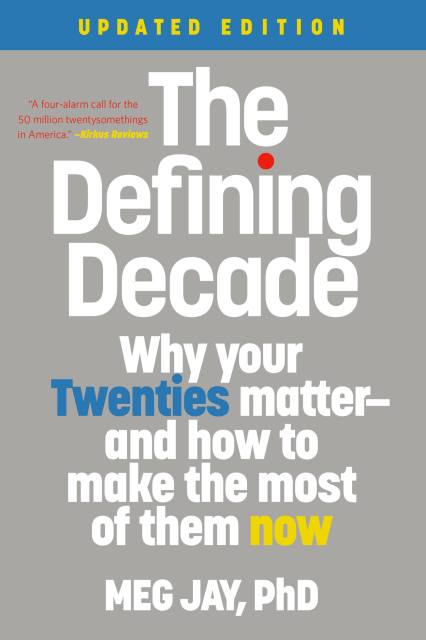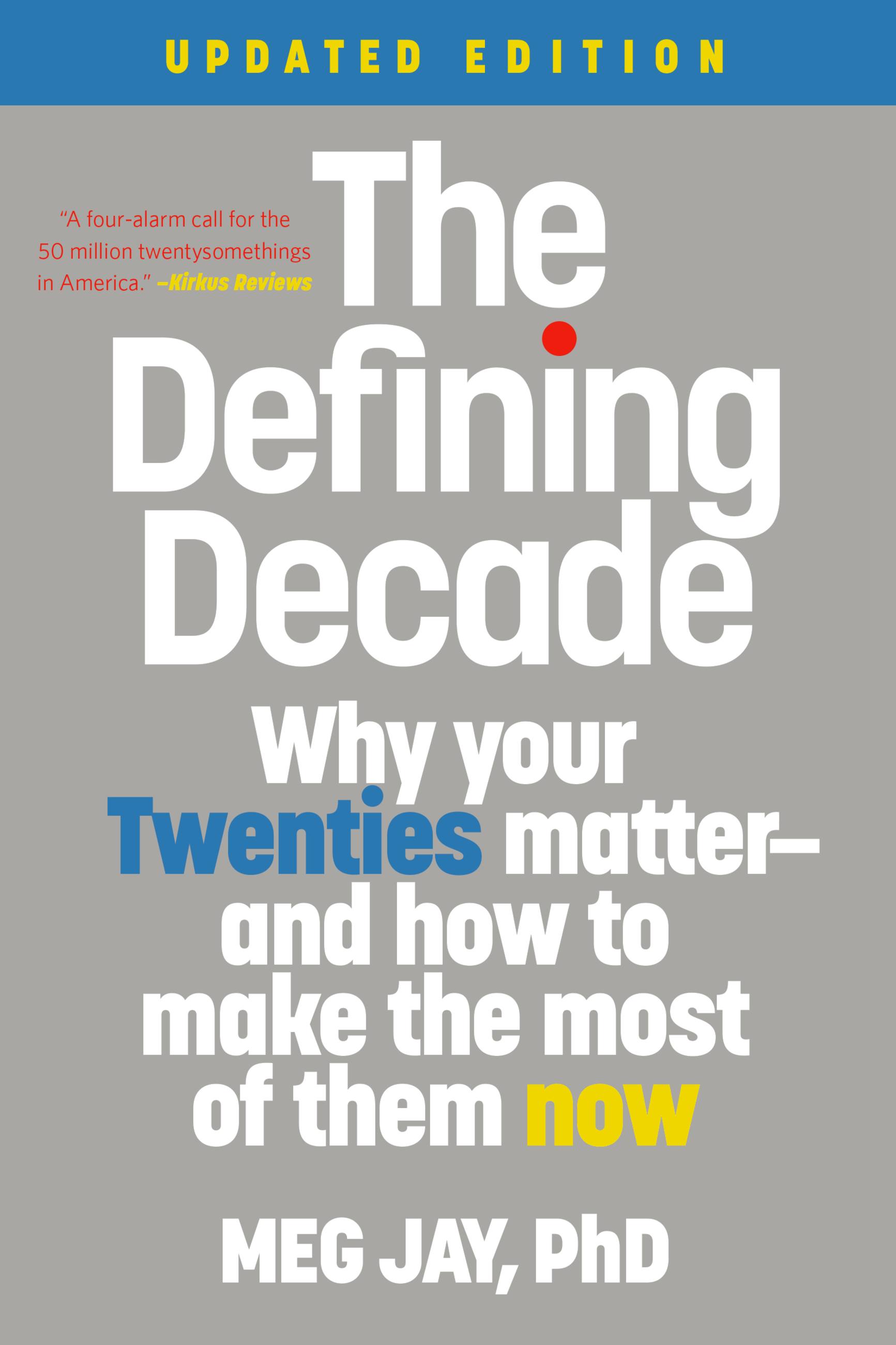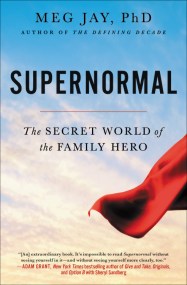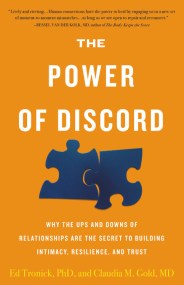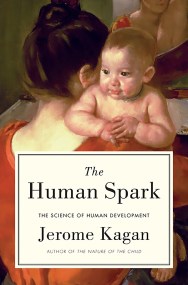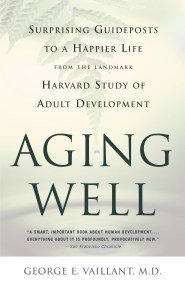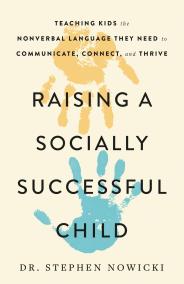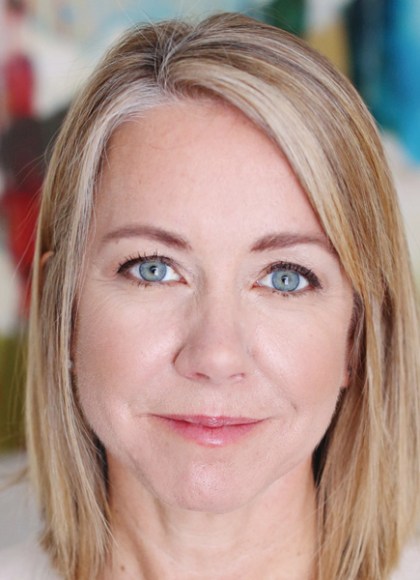By clicking “Accept,” you agree to the use of cookies and similar technologies on your device as set forth in our Cookie Policy and our Privacy Policy. Please note that certain cookies are essential for this website to function properly and do not require user consent to be deployed.
The Defining Decade
Why Your Twenties Matter--And How to Make the Most of Them Now
Contributors
By Meg Jay
Formats and Prices
- On Sale
- Apr 17, 2012
- Page Count
- 272 pages
- Publisher
- Grand Central Publishing
- ISBN-13
- 9780446575065
Price
$11.99Price
$15.99 CADFormat
Format:
- ebook $11.99 $15.99 CAD
- Audiobook Download (Unabridged) $24.98
- Trade Paperback (Revised) $19.99 $25.99 CAD
This item is a preorder. Your payment method will be charged immediately, and the product is expected to ship on or around April 17, 2012. This date is subject to change due to shipping delays beyond our control.
Buy from Other Retailers:
The Defining Decade has changed the way millions of twentysomethings think about their twenties—and themselves. Revised and reissued for a new generation, let it change how you think about you and yours.
Our "thirty-is-the-new-twenty" culture tells us the twentysomething years don't matter. Some say they are an extended adolescence. Others call them an emerging adulthood. In The Defining Decade, Meg Jay argues that twentysomethings have been caught in a swirl of hype and misinformation, much of which has trivialized the most transformative time of our lives.
Drawing from more than two decades of work with thousands of clients and students, Jay weaves the latest science of the twentysomething years with behind-closed-doors stories from twentysomethings themselves. The result is a provocative read that provides the tools necessary to take the most of your twenties, and shows us how work, relationships, personality, identity and even the brain can change more during this decade than at any other time in adulthood—if we use the time well.
Also included in this updated edition:
- Up-to-date research on work, love, the brain, friendship, technology, and fertility
- What a decade of device use has taught us about looking at friends—and looking for love—online
- 29 conversations to have with your partner—or to keep in mind as you search for one
- A social experiment in which "digital natives" go without their phones
- A Reader's Guide for book clubs, classrooms, or further self-reflection
-
"Meg Jay takes the specific complaints of twenty something life and puts them to diagnostic use."New Yorker
-
"Any recent college grad mired in a quarter-life crisis or merely dazed by the freedom of post-collegiate existence should consider it required reading."Slate.com, Staff Pick
-
"The professional and personal angst of directionless twentysomethings is given a voice and some sober counsel in this engaging guide. While Jay maintains that facing difficulties in one's 20s 'is a jarring--but efficient and often necessary--way to grow,' the author is sincere and sympathetic, making this well-researched mix of generational sociology, psychotherapy, career counseling, and relationship advice a practical treatise for a much-maligned demographic."Publishers Weekly
-
"A clinical psychologist issues a four-alarm call for the 50 million 20-somethings in America.... A cogent argument for growing up and a handy guidebook on how to get there."Kirkus Reviews
-
"Excellently written, this book is sensitive to the emotional life of twentysomethings."Library Journal
-
"THE DEFINING DECADE [is] just the wake up call many twentysomethings need."The Coffin Factory
-
"I strongly recommend THE DEFINING DECADEfor anyone in their 20s trying to figure out their life's direction. You'll learn how to search productively, how to avoid being indulgent, and how to turn good opportunities into great ones."Po Bronson, author of What Should I Do With My Life?, co-author of Nurtureshock
-
"Before reading THE DEFINING DECADE I didn't know enough about the importance of our twenties to be concerned that I could mess it all up. Now that I do, I could worry myself into paralysis, or, as Meg Jay suggests, grab life by the helm--even if I still have no idea in hell where I'm going. Without a doubt, The Defining Decade will leave you eager to embark on what I now see can be the most exciting odyssey of one's life."Rachel Kauder Nalebuff, editor of My Little Red Book
-
"THE DEFINING DECADE is the book twentysomethings have been waiting for. It will not tell you what you should do with your life, but it will inspire, motivate, and educate you to figure it out."Rachel Simmons, author of The Good Girl
-
"THE DEFINING DECADE is eye-opening, important, and a pleasure to read. I highly recommend it."Wendy Mogel, author of The Blessing of a Skinned Knee and The Blessing of a B Minus
-
"Meg Jay brings a sharp intellect, expertise on the life cycle, and extensive clinical experience to this powerful book. Age and time, she argues, are not malleable, even if people live longer and our culture believes that everything is possible. Reading this book will benefit clinicians, cultural commentators, and twentysomethings themselves."Nancy Chodorow, author of Individualizing Gender and Sexuality: Theory and Practice
-
"This fascinating, engaging book makes a convincing case that the twenties are the most transformative period of people's lives, and even better, shows readers how to get off the couch and live that decade well. It should be read by all young adults, their friends, their parents, their grandparents, their bosses, their siblings . . . really, by just about everyone!"Timothy D. Wilson, author of Redirect: The Surprising New Science of Psychological Change
-
"Expecting to experience the joy of freedom and self-discovery, many young men and women find instead confusion, loneliness, and anomie. Jay is just the sort of guide that these twentysomethings and their parents need: sensitive, thoughtful, and wise."Kay Hymowitz, author of Manning Up: How the Rise of Women Has Turned Men into Boys
-
"THE DEFINING DECADE is a rare gem: a fresh, original contribution to the study of adult development that's also a pleasurable, almost effortless read."Daphne de Marneffe, PhD, author of Maternal Desire: On Children, Love, and the Inner Life
-
"Blending the latest social science research with real life accounts of twentysomething clients and students, Jay provides valuable and compelling insights and direction for twentysomethings, their parents, and parents of future twentysomethings."Leslie C. Bell, PhD, author of Hard to Get: 20-Something Women and the Paradox of Sexual Freedom.
-
"THE DEFINING DECADE is a must read for the twentysomething who is looking to build a meaningful, fulfilling, and rich life. Dr. Jay clearly illustrates some of the biggest mistakes we can make in our twenties. But more important she gives advice about how to make decisions that will set twentysomethings up for success in the workplace and intimate relationships in their thirties and beyond."C. J. Pascoe, author of Dude, You're a Fag: Masculinity and Sexuality in High School
-
"THE DEFINING DECADE does an excellent job of conveying the latest social science on twentysomething relationships and helping young adults to understand why these relationships can be so confusing and challenging...Young adults looking for insights about love, life, and marriage should turn to Dr. Meg Jay's engaging and insightful new book."W. Bradford Wilcox, director of the National Marriage Project at the University of Virginia
-
"Meg Jay masterfully blends cutting-edge research and life stories of psychotherapy clients to make a compelling case that this age period is crucial for launching love and work. You will learn a lot from this book and it will spur you to seize control of your future now."Avril Thorne, University of California, Santa Cruz
-
"Listen to me closely. If you know someone already in or entering the third decade of life, or their parents, or their therapist, you must give them this book. Meg Jay slams a cultural corrective on our desk. Pay attention. The twenties are the defining decade of human life where the foundation of every future is laid...No one should turn thirty without having read this book."J. Anderson Thomson Jr., MD; staff psychiatrist, University of Virginia, department of Student Health; co-author, Facing Bipolar: The Young Adult's Guide to Facing Bipolar Disorder
Newsletter Signup
By clicking ‘Sign Up,’ I acknowledge that I have read and agree to Hachette Book Group’s Privacy Policy and Terms of Use
